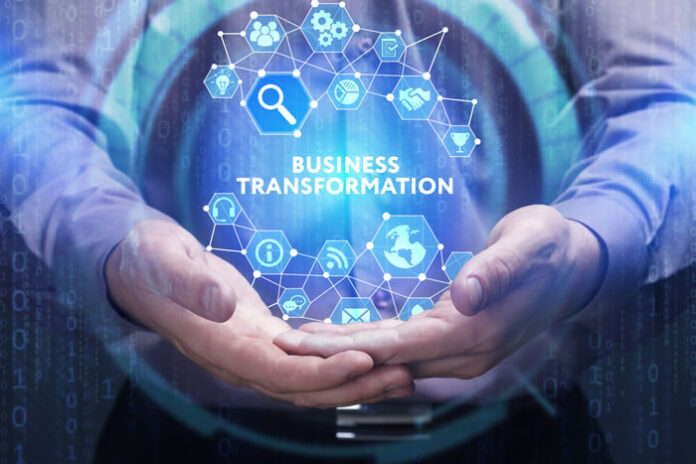Machine learning (ML) and artificial intelligence (AI) have infiltrated every field and industry. Both are crucial in transforming data into assets as part of the digital transformation process. However, in order to effectively harness them for business and process reforms, businesses must have a deeper understanding of their place in the process.
AI has many definitions
While the terms artificial intelligence and machine learning are commonly used, they are not well understood. The fact that Machine Learning is a subfield of AI adds little to the debate about which is more relevant to digital transformation.
There are several definitions of AI and Machine Learning, but a reasonable overview is that AI is concerned with constructing intelligent systems without the need to define explicit rules that govern behavior.
Machine Learning makes predictions and optimizes results by learning from data in changing environmental situations. Despite the fact that AI and Machine Learning serve different purposes, they are both critical in a wide range of industries and applications, including:
- Healthcare
- Sciences of life
- FinTech
- Management of information
- Analyzing data
- Transformation to the digital age
- Cybersecurity
- Applications for the general public
- Smart building technologies of the future
- Predictive maintenance, among other things
At this stage, seeing how Machine Learning/AI is being applied in the real world to effect digital changes becomes enlightening.
Machine Learning and Artificial Intelligence and Its Applications in the Real World
Supply chains, online stores, and call centers all rely significantly on AI-powered robots for operations, in addition to Google and other social media platforms.
For corporations like Uber and Amazon, AI is used in many back-end processes and customer-facing websites.
AI is being used in marketing and sales across the board to recognize and target very narrow audience groups based on location and personality type. The 2017 State of Artificial Intelligence for Enterprises report from Teradata examines firms that have applied AI.
According to the 260 CEOs questioned for the research, they all expect:
For every dollar invested in AI today, there will be a $1.23 return in the next three years. In the next five years, the price will rise to $1.99. Over the next ten years, the ROI will rise to $2.87. That’s unprecedented in any other industry.
Artificial intelligence is a broad term that refers to a variety of technologies and methods.
While both AI and Machine Learning are powerful, Machine Learning’s applications go beyond AI’s due to its algorithms’ ability to learn from more data over time.
As a result, more businesses and industries are incorporating Machine Learning into their business processes and systems.
Machine Learning in network security can be used to automate threat hunting while making faster judgments and then acting on those decisions to assure network safety.
“This technology is a natural complement to IoT and big data, as algorithms rely on massive data sets drawn from as many sources as possible to provide actionable insights. Machine Learning algorithms get smarter and more accurate in their predictions and decision-making abilities as they have access to more relevant and clean data,” explains Karen Marie, a business blogger at Write My X and 1Day2Write.
Every business’s capacity to plan, develop budgets, and assign resources effectively is built on the ability to obtain accurate, trustworthy projections fast.
The Importance of AI and Machine Learning in Digital Transformation
Machine learning offers a wide range of applications in industries like manufacturing, healthcare, utilities, retail, and many more.
Its capacity to quickly analyze and deduce meaning from large amounts of data coming in from IoT sensors allows for the detection of patterns and abnormalities using intuitive networks.
While AI is vital in the maturation and evolution of technologies such as the deployment of digital twins, it is Machine Learning that makes AI a viable aspect of digital transformation in various industries.
“Machine Learning/AI and digital twins meet in the construction of digital replicas of physical assets, processes, or systems, according to a recent Data Science Central article. Machine Learning offers automatic and continuous learning through data processing, monitoring, testing, and finally proposing possible actions to change or enhance outcomes,” shares Ben Harrison, a technical writer at Originwritings and Britstudent.
Furthermore, Machine Learning’s ability to discover trends or abnormalities in large data sets is altering a variety of industries, ranging from healthcare and clinical research to compliance and security.
Customer service, user experience, and contextual marketing are all evolving thanks to machine learning.
Machine Learning algorithms are also being used within chatbots by a variety of customer-facing sectors to forecast and answer client enquiries by learning and perfecting their capacity to accurately respond to customers with each contact.
As a result, customer wait times are minimized, and call center personnel are freed to answer more difficult inquiries.
Conclusion
Machine Learning, on the other hand, is focused on completing and enhancing a task through data interpretation—with or without human participation.
In the era of cloud, mobile, IoT, analytics, and Machine Learning/AI, digital transformation is about re-engineering and redesigning your business to improve processes, customer experiences, and decision outcomes.
This definition explains why Machine Learning is more relevant to digital transformation since it allows people and businesses to innovate by automating time-consuming jobs.
















